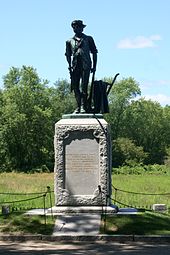At the beginning of 2011, I made several New Year's Resolutions. Some of them included things like completing my memorization of the book of Matthew and journalling at least once a week. As with many resolutions, these didn't make it to the end of the year, and I think I know why. I haven't been diligent in managing my time effectively. Sometimes I'll get so busy with some activities—even good ones—that others are set aside or forgotten. It's easy for me, once I've started doing something, to become absorbed in it and not want to stop for anything else. It's good to be able to focus on a task, but I also need to be more organized so that I don't spend all my time doing one or two things and neglect others. If I had had better time management this past year, I probably would have been more successful in keeping my resolutions. So for 2012, in addition to my other resolutions, I've made one new one: I will manage my time in an orderly fashion. I've made a schedule for myself, and I will follow it. If I find that the schedule does not work well for me, or if something comes up that requires me to change my plans, I will not abandon the schedule; I will modify it. In addition, I will make use of spare moments I find, instead of wasting them as I have sometimes done in the past. God is a God of order, and keeping my life in order is one way I can honor Him. And once my time is organized, the other goals I have will be easier to maintain. I'm also planning to start college in the coming year, and having good time management habits will be a valuable asset then, as well.
It's been said that time is money. I think that time is even more valuable than money. Time and money can be exchanged for each other, but there are many things money cannot do that time can. The entire universe, as we know it, exists in time. Time is a commodity that all of us have, and we can choose how we use it, whether to advance God's kingdom, to serve ourselves, or to while away with no real purpose. A new year is beginning for all of us. How will you spend it?
It's been said that time is money. I think that time is even more valuable than money. Time and money can be exchanged for each other, but there are many things money cannot do that time can. The entire universe, as we know it, exists in time. Time is a commodity that all of us have, and we can choose how we use it, whether to advance God's kingdom, to serve ourselves, or to while away with no real purpose. A new year is beginning for all of us. How will you spend it?
To every thing there is a season, and a time to every purpose under the heaven: A time to be born, and a time to die; a time to plant, and a time to pluck up that which is planted; A time to kill, and a time to heal; a time to break down, and a time to build up; A time to weep, and a time to laugh; a time to mourn, and a time to dance; A time to cast away stones, and a time to gather stones together; a time to embrace, and a time to refrain from embracing; A time to get, and a time to lose; a time to keep, and a time to cast away; A time to rend, and a time to sew; a time to keep silence, and a time to speak; A time to love, and a time to hate; a time of war, and a time of peace.
Ecclesiastes 3:1–8Happy New Year!

